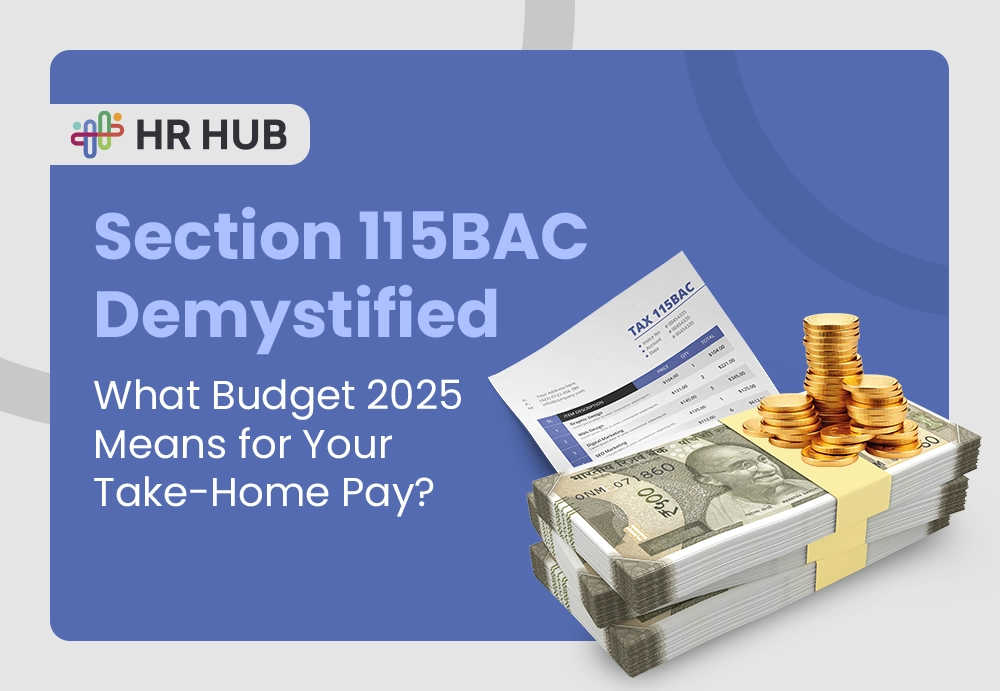Imagine that on payday, you click a button rather than fumbling with spreadsheets, verifying tax rates, and worrying about whether you've overlooked an employee's overtime. Salaries go out, taxes are calculated, reports are ready—and you still have time for that second cup of coffee.
That’s the magic the right payroll software for small businesses can bring. But here’s the catch: not all payroll tools are created equal. Choosing the right one can feel like navigating a maze, especially when your budget, compliance requirements, and team’s expectations are all pulling in different directions.
This isn’t just about paying people. It’s about finding a payroll partner that grows with you, keeps you compliant, and saves you from those 2 AM “Did I file that correctly?” moments. Let’s break it down—without falling into the boring, generic trap.
Start With Your Reality, Not the Vendor’s Pitch
Every small business is unique. Some have three employees; others have thirty. Some pay weekly, others monthly. Some need multi-state tax compliance; others just want a simple salary-to-bank process.
Before you even look at demos or price tags, map out:
- How often do you run payroll?
- The complexity of your deductions (bonuses, overtime, benefits).
- If you already use payroll and HR services for a small business, such as attendance tracking or leave management.
- Your growth plans—because switching software every year is exhausting.
Knowing your ground reality means you’ll spot fluff a mile away and focus only on tools that fit you.

1. Understanding Why Payroll Software Is a Game-Changer for Small Businesses
A lot of small business owners initially think payroll software is a “big company thing.” After all, when you only have a handful of employees, it might seem faster just to plug numbers into a spreadsheet. The reality is that payroll errors can result in lost time, needless expenses, and even legal issues if you have even one employee.
Missed tax filings can result in penalties. A low salary might make people less confident. Additionally, recalculating wages takes time away from expanding the business or providing customer service.
The best payroll system for small businesses is like a silent, tireless finance assistant that never takes a break. It:
- Calculates salaries and deductions automatically, saving you hours that would be spent with calculators.
- Tracks compliance with changing laws—whether it’s tax rate updates or new labor regulations.
- Generates accurate, transparent payslips that employees can access anytime, eliminating constant “Can you send me my payslip?” requests.
- Saves hours every pay cycle, giving you more breathing room to focus on strategy, sales, or simply running your business without payroll stress.
The benefit that most people don't realize is that a smoothly operated payroll procedure not only keeps workers satisfied but also gives your company a more reputable appearance to banks, partners, and possible investors. Professionalism in payroll signals that you run a well-managed operation.
2. Start with Your Business’s Unique Needs
Directly visiting vendor websites is a simple way to waste money, much like purchasing shoes before knowing your size. A thorough audit of your payroll reality should come first.
Consider:
- Employee Count and Growth Plans – A tool that works for 5 employees might not scale well to 25. Plan for growth so you’re not switching systems in a year.
- Pay Frequency: Some companies make monthly, biweekly, or weekly payments. Not every schedule is supported by every piece of software.
- Type of Employees – Contractors, part-timers, and commission-based workers often require different pay structures and tax handling.
- Integration Needs – If you use accounting or HR tools, pick payroll software that connects seamlessly to prevent double entry.
- Location Coverage – Multi-state or multi-country operations require built-in support for regional compliance rules.
If you already use payroll and HR services for small businesses, such as attendance tracking, leave management, or performance evaluations, consider an all-in-one platform instead of piecing together different systems that don’t communicate. That integration can save hours of manual reconciliation each month.
3. The Must-Have Features (No Compromises)
It's easy to be impressed when vendors show you their extensive feature list, but not all of them are important to your company. Pay attention to what has a direct bearing on efficiency, accuracy, and compliance:
- Automated Calculations – Your system should handle every variable—salaries, overtime, bonuses, reimbursements—without you editing formulas. This reduces human error and payroll disputes.
- Tax Compliance – Look for automatic tax rate updates, pre-filled forms like Form 16 (India) or W-2 (US), and the ability to file directly from the software.
- Direct Deposit & Multiple Payment Options – Flexibility is key. Even if most employees prefer bank transfers, some may still opt for cheques or digital wallet payments.
- Employee Self-Service Portal – This not only empowers employees but also reduces HR workload. They can download payslips, check tax forms, and monitor leave balances independently.
- Integration Capabilities – Payroll should “talk” to your accounting software, time trackers, and HR platform to ensure consistent, accurate data.
- Custom Reports & Analytics – A payroll system isn’t just for paying wages—it should help you analyze payroll costs, track overtime, and forecast budgets.
4. Ease of Use—Because Complexity Kills Adoption
Small businesses rarely have a payroll expert on staff. If the software feels like operating a spaceship, it will either be misused or abandoned.
Choose software with:
- Intuitive Dashboards showing your payroll status and next steps at a glance.
- Guided Payroll Runs that prompt you through each step—no guesswork.
- Clear Error Alerts so issues are spotted and fixed before pay is processed.
- Hands-on Training & Onboarding Support—webinars, live chats, or guided setup calls—not just a PDF manual dumped in your inbox.
The easier it is to use, the more likely it will be used consistently, even if your primary payroll person is unavailable.
5. Compliance Isn’t Optional—It’s a Safety Net
In addition to being embarrassing, payroll errors may be against the law. Staying compliant means staying in business.
The right software should:
- Automatically calculate statutory deductions like PF, ESI, and TDS in India, or federal, state, and local taxes in the US.
- Auto-update to reflect changes in tax laws or labor regulations.
- Store and organize payroll records for easy retrieval during audits or inspections.
One missed compliance update could cost you far more than the software’s subscription. This is why compliance-ready tools are worth every penny.
6. Price vs. Value—The Real ROI
The cheapest subscription plan may seem alluring, but that's shortsighted. Cheap software without integration or compliance tools can end up costing you much more in the long run in the form of fines or manual labor.
Weigh the cost against:
- Time saved each payroll cycle.
- Compliance protection that shields you from fines.
- Improved employee trust through accurate, on-time payments.
A high-quality payroll and HR services for a small business platform isn’t just an expense—it’s a safeguard for your business’s reputation and stability.
7. Test Before You Trust
A trial period isn’t just a marketing gimmick—it’s your opportunity to see if the software works in your world.
During a trial:
- Run a mock payroll for a full cycle.
- Generate reports and assess their readability and usefulness.
- Test integration with your existing tools.
- Let both your HR and finance teams explore it—different users catch different flaws.
This hands-on experience will tell you more than any sales pitch.
8. Security Should Never Be an Afterthought
Payroll data is among the most sensitive in your business. Mishandling it can cause serious legal and reputational damage.
Insist on:
- Bank-grade encryption for all data transfers.
- Role-based access controls ensure that only the right people can see sensitive data.
- Regular automated backups to avoid catastrophic data loss.
Remember: trust is built when employees know their personal and financial details are in safe hands.

9. Get Proof from Other Users
Don’t let the vendor be the only voice you hear. Look for:
- Independent reviews on trusted comparison sites.
- Referrals from fellow business owners in your network.
- Industry-specific case studies showing how the software handled similar payroll challenges.
A glowing testimonial from a company similar to yours carries far more weight than a generic five-star rating.
Where It All Comes Together
Choosing the right payroll software for a small business isn’t just a tech purchase—it’s a decision that impacts every paycheck, every tax filing, and every ounce of trust your employees place in you.
A robust platform like HR HUB takes this responsibility seriously. Designed for small and growing businesses, HR HUB’s payroll module offers automated salary calculations, compliance updates, direct deposits, employee self-service, and deep integration with HR functions. It’s built to make payroll so effortless you’ll wonder how you ever managed without it.
Because in the long run, the right payroll partner doesn’t just pay people—it powers your business forward.






